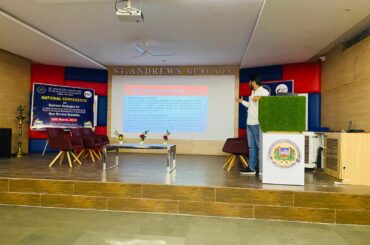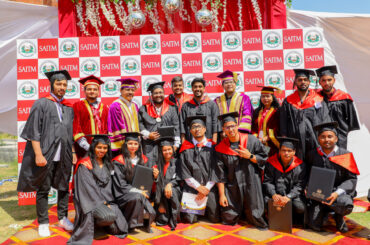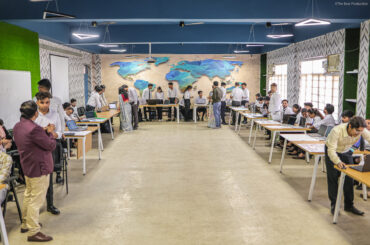Bachelor of Engineering in Computer Science
A Bachelor of Engineering in Computer Science is an undergraduate program that equips students with a comprehensive understanding of computer science principles, programming, and software development.
The curriculum typically includes courses in algorithms, data structures, computer architecture, operating systems, databases, networking, artificial intelligence, and software engineering. Students gain hands-on experience through laboratory work, projects, and internships, which help them develop problem-solving and analytical skills.
This program equips graduates with the knowledge and technical expertise required to pursue careers in various fields, such as software development, cybersecurity, data science, and IT consulting.
With the rapid advancement of technology, a Bachelor of Engineering in Computer Science offers excellent career prospects and opportunities for further specialization or advanced studies.
Some of the most opted courses in India and St. Andrews college or different Engineering college or Management colleges are as follows:-
Highlights of Bachelor of Engineering in Computer Science
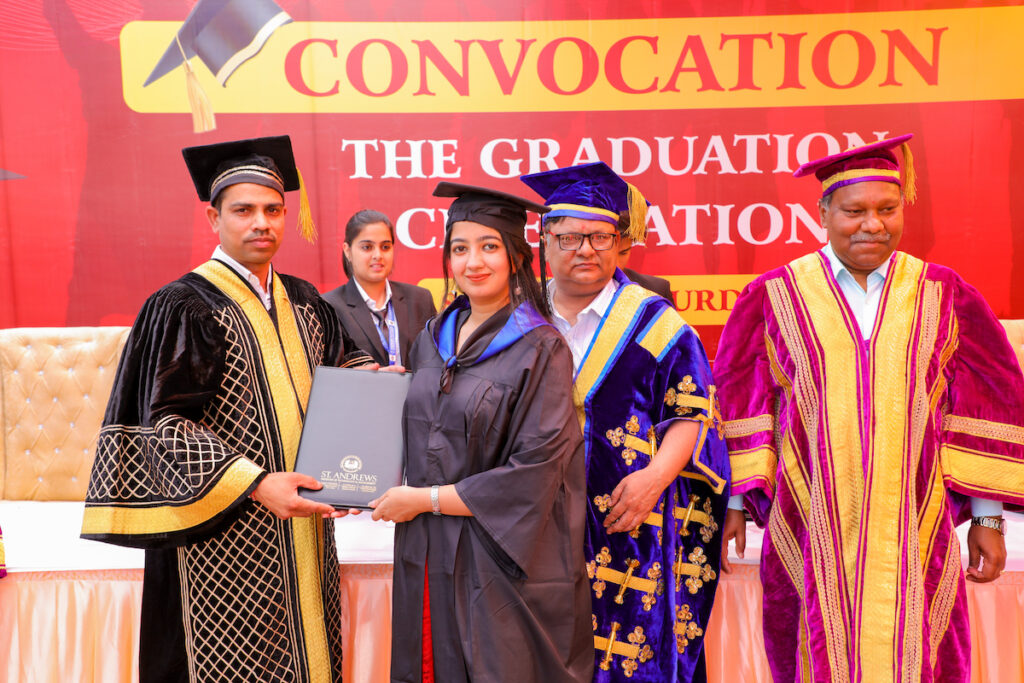
Branch Name: Computer Science Engineering (CSE)
Eligibility:
- 10+2 with Physics, Chemistry, and Mathematics
- Minimum aggregate score of 50-60%
Admission Process:
- Entrance Exam
- Counseling/Interview (in some institutions)
Entrance Exam:
- JEE Main
- JEE Advanced
- BITSAT
- State-level exams (e.g., MHT-CET, WBJEE)
Job Profiles: Software Developer, Data Scientists, System Analyst, Network Engineer, Cyber Security Analyst, Web Designing, Computer Scientist, Web Developer
Average Salary:
- INR 3-8 lakhs per annum (entry-level)
- Recruiting Companies: Google, Microsoft, Amazon, Infosys, TCS, Wipro
Specializations in Computer Science
- There are various courses and degree programmes similar to computer science and other related courses.
- The major difference between these courses lies in the practical application of core computer science engineering subjects and the specific functionalities utilized during corporate experience.
Eligibility Criteria for Computer Science Engineering Courses
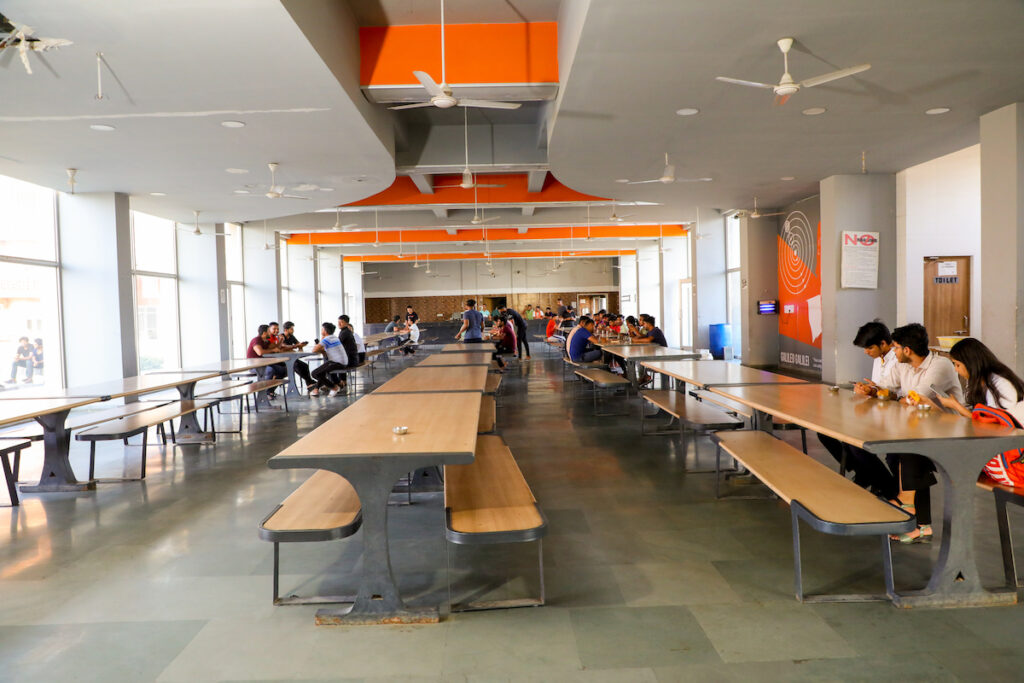
The eligibility criteria for a Bachelor of Engineering (BE) in Computer Science typically vary by institution, but the common requirements are as follows:
Educational Qualifications:
- High School Diploma: Candidates must have completed their higher secondary education (12th grade) or equivalent from a recognized board.
- Subjects: They should have studied Physics, Chemistry, and Mathematics (PCM) as core subjects in their 12th grade.
Minimum Marks:
- Percentage: A minimum aggregate score of 50-60% in PCM is usually required. This can vary by institution.
- Specific Scores: Some colleges may require a minimum score in each subject (Physics, Chemistry, Mathematics).
Entrance Exams:
- Candidates often need to qualify for national or state-level engineering entrance exams such as:
- JEE Main: Conducted by the National Testing Agency (NTA) in India.
- State Entrance Exams: Like MHT-CET (Maharashtra), KCET (Karnataka), TNEA (Tamil Nadu Engineering Admissions).
- Institutional Exams: Some institutions conduct their own entrance exams, such as BITSAT for BITS Pilani, VITEEE for VIT University, etc.
Age Limit:
- Typically, candidates should be at least 17 years old at the time of admission.
- Some institutions may have an upper age limit, which is usually around 25 years.
Nationality:
- Candidates should be citizens of the country where the institution is located.
- For international students, there may be additional requirements such as visa, proficiency in the language of instruction, etc.
Additional Requirements:
- English Proficiency: Some institutions may require proof of proficiency in English through tests like TOEFL or IELTS, especially for international students.
- Medical Fitness: A medical certificate proving the candidate’s fitness may be required.
Example of Specific Institution Requirements
Indian Institutes of Technology (IITs):
- Qualification in JEE Main and JEE Advanced.
- At least 75% marks in the 12th board exams or top 20 percentile in the 12th board exams.
St. Andrews Institute of technology and management (SAITM), Gurgaon:
- Qualification: 12th Pass .
- At least 50% marks in the 12th board exams.
State Engineering Colleges:
- Qualification in state-specific entrance exams.
- Meeting the state’s specific percentage requirements in 12th grade PCM subjects.
Admission Process for Computer Science Engineering Courses

The admission process for a Bachelor of Engineering (BE) in Computer Science typically involves several steps, which can vary slightly depending on the institution and country.
Here’s a general outline of the process to get admission in CSE colleges:
Research and Select Colleges
- Identify Colleges: Research and shortlist colleges offering BE in Computer Science based on factors like rankings, faculty, infrastructure, placement records, and location.
- Understand Criteria: Check the specific eligibility criteria, entrance exams required, and important dates for each shortlisted college.
Prepare for Entrance Exams
- Choose Exams: Identify the entrance exams required for admission to the chosen colleges. Common exams include JEE Main, JEE Advanced, state-level exams (like MHT-CET, KCET), and institution-specific exams (like BITSAT, VITEEE).
- Study and Coaching: Prepare for these exams through self-study, coaching classes, and practice tests.
- Register for Exams: Complete the registration process for the entrance exams, adhering to deadlines and requirements.
Take Entrance Exams
- Appear for Exams: Take the required entrance exams on the scheduled dates.
- Result Declaration: Wait for the results of the entrance exams, which usually determine eligibility for further steps.
Apply to Colleges
- Fill Application Forms: After clearing the entrance exams, fill out application forms for the shortlisted colleges.
- Submit Documents: Upload or submit required documents such as entrance exam scores, 12th-grade marksheets, identity proof, and photographs.
- Pay Application Fees: Pay the necessary application fees for each college.
Participate in Counseling
- Centralized Counseling: For institutions like IITs, NITs, and some state colleges, participate in centralized counseling processes like JoSAA (Joint Seat Allocation Authority) or state-level counseling bodies.
- Choice Filling: During counseling, fill in your preferred choices of colleges and courses based on your entrance exam rank.
- Seat Allotment: Seats are allotted based on your rank, preferences, and availability.
Document Verification
- Verify Documents: Attend document verification sessions at the allotted centers to confirm your eligibility.
- Submit Originals: Submit original documents for verification, including entrance exam scores, 12th-grade marksheets, and other required certificates.
Admission Confirmation
- Fee Payment: Pay the admission fee to confirm your seat in the allotted college.
- Provisional Admission Letter: Receive a provisional admission letter from the college.
Report to College
- Final Admission: Report to the college on the specified date with all necessary documents and admission letters.
- Orientation: Attend the orientation program and complete any additional formalities required by the college.
Popular Entrance Exams Computer Science Engineering Course
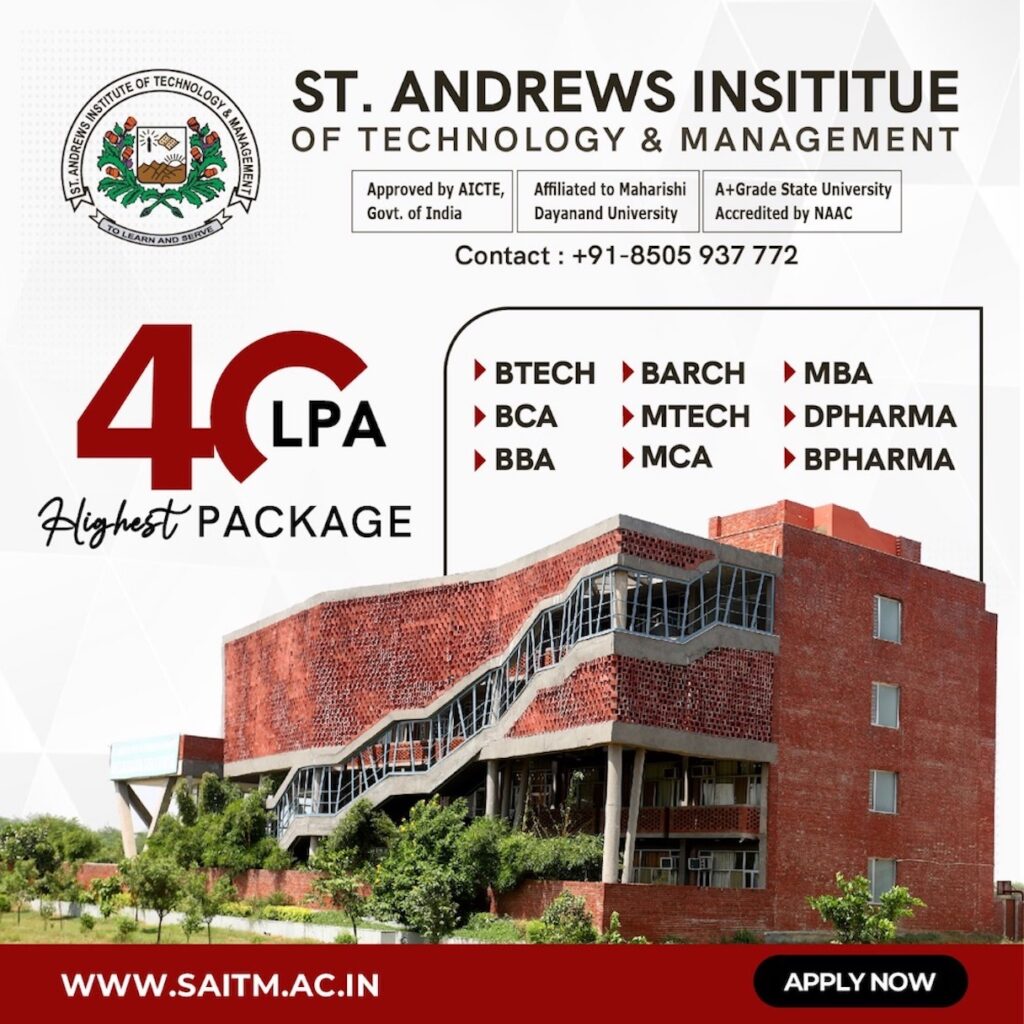
Several popular entrance exams are conducted for admission to Bachelor of Engineering (BE) programs in Computer Science across various institutions.
Here are some of the most prominent ones:
National-Level Exams
Joint Entrance Examination (JEE) Main
- Conducted by: National Testing Agency (NTA)
- Eligibility: Completion of 10+2 with Physics, Chemistry, and Mathematics.
- Purpose: Admission to NITs, IIITs, and other centrally funded technical institutions.
- Structure: Two papers – Paper 1 for BE/B.Tech and Paper 2 for B.Arch/B.Planning.
Joint Entrance Examination (JEE) Advanced
- Conducted by: One of the IITs (Indian Institutes of Technology) on a rotational basis.
- Eligibility: Qualification in JEE Main.
- Purpose: Admission to IITs and a few other institutions.
- Structure: Two papers, each consisting of three sections – Physics, Chemistry, and Mathematics.
Birla Institute of Technology and Science Admission Test (BITSAT)
- Conducted by: BITS Pilani
- Eligibility: Completion of 10+2 with Physics, Chemistry, Mathematics, and adequate proficiency in English.
- Purpose: Admission to BE programs at BITS Pilani, BITS Goa, and BITS Hyderabad.
- Structure: Online test with sections on Physics, Chemistry, Mathematics, English Proficiency, and Logical Reasoning.
VIT Engineering Entrance Examination (VITEEE)
- Conducted by: Vellore Institute of Technology (VIT)
- Eligibility: Completion of 10+2 with Physics, Chemistry, and Mathematics/Biology.
- Purpose: Admission to BE/B.Tech programs at VIT Vellore, VIT Chennai, VIT Bhopal, and VIT-AP.
- Structure: Online test with sections on Physics, Chemistry, Mathematics/Biology, English, and Aptitude.
State-Level Exams
Maharashtra Common Entrance Test (MHT-CET)
- Conducted by: State Common Entrance Test Cell, Maharashtra.
- Eligibility: Completion of 10+2 with Physics, Chemistry, and Mathematics.
- Purpose: Admission to engineering programs in colleges across Maharashtra.
- Structure: Online test with sections on Physics, Chemistry, and Mathematics.
Karnataka Common Entrance Test (KCET)
- Conducted by: Karnataka Examinations Authority (KEA)
- Eligibility: Completion of 10+2 with Physics, Chemistry, and Mathematics.
- Purpose: Admission to engineering programs in colleges across Karnataka.
- Structure: Offline test with sections on Physics, Chemistry, Mathematics, and Biology (optional).
West Bengal Joint Entrance Examination (WBJEE)
- Conducted by: West Bengal Joint Entrance Examinations Board (WBJEEB)
- Eligibility: Completion of 10+2 with Physics, Chemistry, and Mathematics.
- Purpose: Admission to engineering programs in colleges across West Bengal.
- Structure: Offline test with sections on Physics, Chemistry, and Mathematics.
Tamil Nadu Engineering Admissions (TNEA)
- Conducted by: Anna University
- Eligibility: Completion of 10+2 with Physics, Chemistry, and Mathematics.
- Purpose: Admission to engineering programs in colleges across Tamil Nadu.
- Structure: Based on 10+2 scores; no entrance exam.
Fee Structure for BE in Computer Science
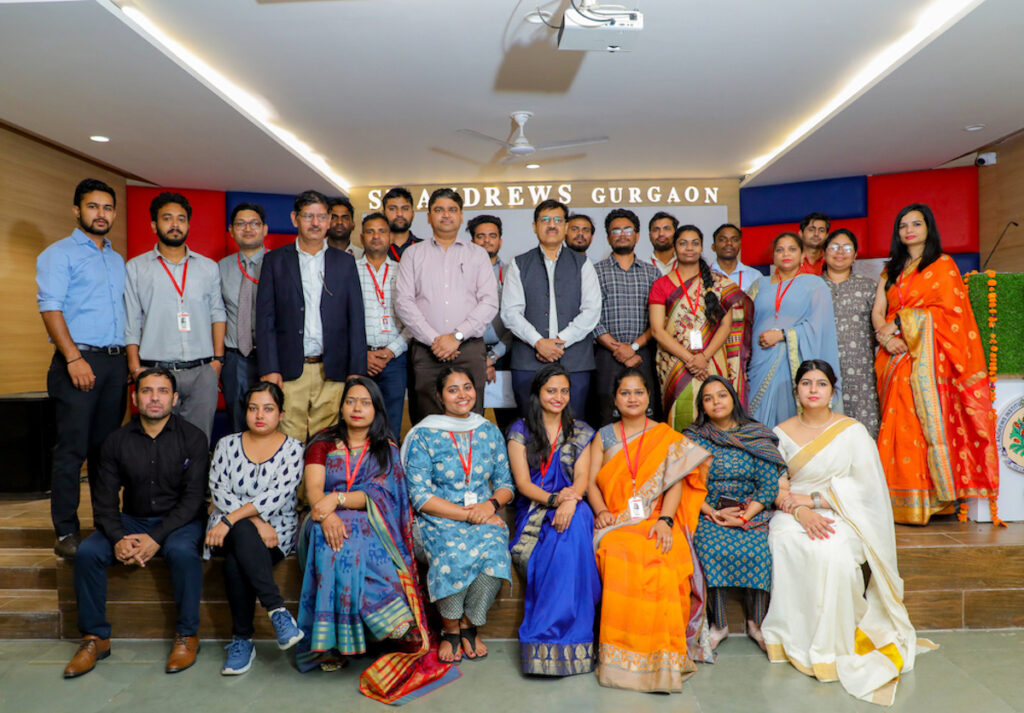
The fee structure for a Bachelor of Engineering (BE) in Computer Science can vary significantly based on the type of institution (government, private, deemed universities), location, and other factors.
Here’s an overview of the typical fee structures:
Government/Public Institutions
Indian Institutes of Technology (IITs)
- Tuition Fee: ₹2-3 lakhs per annum
- Other Fees: Hostel fee, mess charges, library fee, exam fee, etc., can add up to ₹50,000-₹1 lakh per annum.
- Total Estimated Cost: ₹8-12 lakhs for the entire course.
National Institutes of Technology (NITs)
- Tuition Fee: ₹1.25-1.5 lakhs per annum
- Other Fees: Hostel fee, mess charges, library fee, exam fee, etc., can add up to ₹30,000-₹70,000 per annum.
- Total Estimated Cost: ₹6-8 lakhs for the entire course.
State Engineering Colleges
- Tuition Fee: ₹40,000-₹1.5 lakhs per annum, depending on the state and the specific college.
- Other Fees: Hostel fee, mess charges, library fee, exam fee, etc., can add up to ₹20,000-₹50,000 per annum.
- Total Estimated Cost: ₹3-6 lakhs for the entire course.
Private Institutions
Top Private Engineering Colleges (e.g., BITS Pilani, VIT)
- Tuition Fee: ₹2-4 lakhs per annum
- Other Fees: Hostel fee, mess charges, library fee, exam fee, etc., can add up to ₹50,000-₹1 lakh per annum.
- Total Estimated Cost: ₹10-16 lakhs for the entire course.
Other Private Engineering Colleges
- Tuition Fee: ₹1-2.5 lakhs per annum
- Other Fees: Hostel fee, mess charges, library fee, exam fee, etc., can add up to ₹30,000-₹80,000 per annum.
- Total Estimated Cost: ₹6-12 lakhs for the entire course.
Additional Costs
- Books and Supplies: ₹10,000-₹20,000 per annum.
- Laptop/Computer: ₹30,000-₹70,000 (one-time cost).
- Other Personal Expenses: ₹30,000-₹50,000 per annum.
Scholarships and Financial Aid
- Merit-Based Scholarships: Many institutions offer scholarships based on entrance exam ranks and academic performance.
- Need-Based Financial Aid: Some institutions provide financial aid based on the family’s income.
- Government Scholarships: Various state and central government scholarships are available for eligible students.
Computer Science Engineering Syllabus
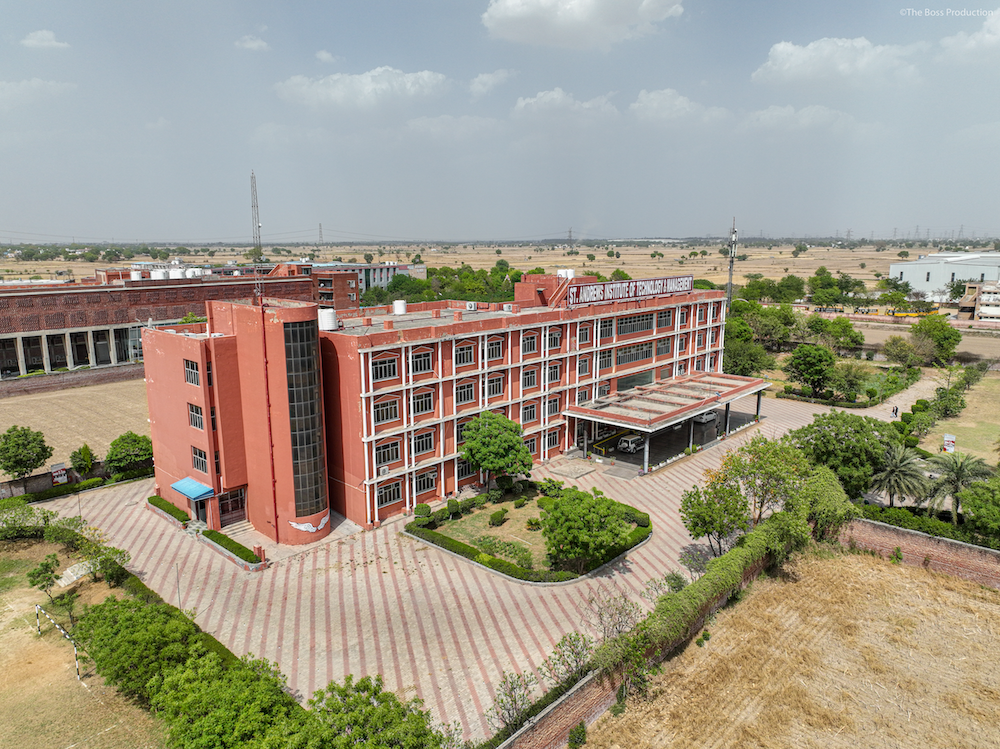
The syllabus for a Bachelor of Engineering (BE) in Computer Science and Engineering (CSE) typically covers a broad range of topics over eight semesters (four years). The curriculum is designed to provide students with a solid foundation in computer science principles, programming, hardware, software, and applications.
Here is a general overview of the syllabus:
Semester 1
Mathematics I: Fundamental concepts of calculus, linear algebra, and differential equations. Topics include limits, continuity, differentiation, integration, matrices, and vector spaces.
Physics I: Basic principles of mechanics, waves, and thermodynamics. Topics include Newton’s laws, work and energy, oscillations, and thermal properties of matter.
Chemistry: Introduction to chemical principles, atomic structure, chemical bonding, thermodynamics, and kinetics. Topics include periodic table, chemical reactions, and properties of gases, liquids, and solids.
Introduction to Programming: Basics of programming using a high-level language (such as C or Python). Topics include algorithms, flowcharts, data types, control structures, functions, and arrays.
Engineering Graphics: Fundamentals of engineering drawing and graphical representation. Topics include orthographic projections, isometric views, and CAD software.
Basic Electrical Engineering: Principles of electrical circuits and systems. Topics include Ohm’s law, Kirchhoff’s laws, AC/DC circuits, and basic electrical machines.
English for Communication: Development of communication skills in English. Topics include grammar, vocabulary, writing, speaking, and listening skills.
Physics Lab: Practical experiments related to mechanics, waves, and thermodynamics. Emphasis on data collection, analysis, and interpretation.
Chemistry Lab: Practical experiments in chemistry to illustrate principles discussed in lectures. Emphasis on laboratory techniques and safety.
Programming Lab: Hands-on programming exercises to complement the Introduction to Programming course. Emphasis on writing, testing, and debugging programs.
Semester 2
Mathematics II: Advanced calculus and differential equations. Topics include multiple integrals, vector calculus, and second-order differential equations.
Physics II: Electromagnetism, optics, and modern physics. Topics include electric fields, magnetic fields, light, and quantum mechanics.
Basic Electronics Engineering: Introduction to electronic devices and circuits. Topics include diodes, transistors, amplifiers, and digital electronics.
Data Structures: Study of data organization, storage, and manipulation. Topics include arrays, linked lists, stacks, queues, trees, and graphs.
Engineering Mechanics: Fundamentals of statics and dynamics. Topics include force systems, equilibrium, kinematics, and kinetics.
Object-Oriented Programming: Concepts of object-oriented programming using a language like C++ or Java. Topics include classes, objects, inheritance, polymorphism, and encapsulation.
Environmental Science: Introduction to environmental science and sustainability. Topics include ecosystems, pollution, natural resources, and environmental management.
Electronics Lab: Practical experiments with electronic components and circuits. Emphasis on circuit design and analysis.
Data Structures Lab: Practical implementation of data structures. Emphasis on writing and testing programs using various data structures.
Object-Oriented Programming Lab: Hands-on exercises to complement the Object-Oriented Programming course. Emphasis on designing and implementing object-oriented programs.
Semester 3
Mathematics III: Advanced topics in mathematics including probability, statistics, and numerical methods. Topics include random variables, probability distributions, and numerical solutions of equations.
Digital Logic Design: Study of digital circuits and systems. Topics include logic gates, combinational and sequential circuits, and finite state machines.
Computer Organization and Architecture: Internal structure and organization of computer systems. Topics include CPU architecture, memory hierarchy, and input/output systems.
Discrete Mathematics: Mathematical foundations for computer science. Topics include logic, set theory, combinatorics, graph theory, and algorithms.
DBMS: Principles of database design and management. Topics include relational models, SQL, normalization, and transaction management.
Operating Systems: Concepts and design of operating systems. Topics include process management, memory management, file systems, and security.
Digital Logic Lab: Practical experiments in digital circuit design. Emphasis on designing and testing combinational and sequential circuits.
DBMS Lab: Practical exercises in database design and SQL. Emphasis on creating and managing databases.
Operating Systems Lab: Hands-on exercises in operating system concepts. Emphasis on process management, memory management, and file systems.
Semester 4
Mathematics IV: Continuation of advanced mathematics topics. Topics include linear algebra, complex analysis, and partial differential equations.
Design and Analysis of Algorithms: Techniques for designing and analyzing algorithms. Topics include time and space complexity, sorting, searching, and graph algorithms.
Microprocessors and Interfacing: Study of microprocessor architecture and interfacing techniques. Topics include instruction sets, assembly language programming, and peripheral interfacing.
Theory of Computation: Fundamental concepts of computation theory. Topics include automata, formal languages, Turing machines, and computability.
Software Engineering: Principles and practices of software development. Topics include software development life cycle, project management, and software testing.
Computer Networks: Principles of computer networking. Topics include network models, protocols, network security, and wireless networks.
Microprocessors Lab: Practical experiments with microprocessors and interfacing techniques. Emphasis on programming and hardware interfacing.
Algorithm Lab: Practical implementation of algorithms. Emphasis on coding and analyzing various algorithms.
Software Engineering Lab: Hands-on exercises in software development. Emphasis on project work and software testing techniques.
Semester 5
Probability and Statistics: Introduction to probability and statistics for engineering. Topics include probability theory, statistical inference, and regression analysis.
Compiler Design: Principles of compiler construction. Topics include lexical analysis, syntax analysis, semantic analysis, and code generation.
Artificial Intelligence: Introduction to AI concepts and techniques. Topics include search algorithms, knowledge representation, machine learning, and expert systems.
Web Technologies: Fundamentals of web development. Topics include HTML, CSS, JavaScript, web frameworks, and web services.
Elective I (e.g., Data Mining, Mobile Computing): Specialized topics in computer science. Topics vary based on the elective chosen.
Elective II (e.g., Cloud Computing, Cyber Security): Specialized topics in computer science. Topics vary based on the elective chosen.
AI Lab: Practical experiments in artificial intelligence. Emphasis on implementing AI algorithms and techniques.
Web Technologies Lab: Practical exercises in web development. Emphasis on creating and deploying web applications.
Elective I Lab: Practical work related to the chosen elective. Emphasis on implementation and experimentation.
Semester 6
Linear Algebra and Numerical Methods: Introduction to linear algebra and numerical methods for engineers. Topics include vector spaces, eigenvalues, numerical integration, and differential equations.
Cryptography and Network Security: Principles of cryptography and network security. Topics include encryption, decryption, security protocols, and network attacks.
Machine Learning: Introduction to machine learning algorithms and techniques. Topics include supervised learning, unsupervised learning, and neural networks.
Distributed Systems: Concepts and design of distributed systems. Topics include distributed architectures, communication, synchronization, and fault tolerance.
Elective III (e.g., Big Data, Internet of Things): Specialized topics in computer science. Topics vary based on the elective chosen.
Elective IV (e.g., Software Testing, Advanced Databases): Specialized topics in computer science. Topics vary based on the elective chosen.
Machine Learning Lab: Practical implementation of machine learning algorithms. Emphasis on coding and experimenting with ML models.
Network Security Lab: Practical exercises in cryptography and network security. Emphasis on implementing security protocols and defenses.
Elective III Lab: Practical work related to the chosen elective. Emphasis on implementation and experimentation.
Semester 7
Project Management and Finance: Principles of project management and financial planning for engineers. Topics include project lifecycle, budgeting, and financial analysis.
Information Retrieval: Techniques for retrieving information from large datasets. Topics include search engines, indexing, ranking, and relevance.
Human-Computer Interaction: Study of the interaction between humans and computers. Topics include user interface design, usability, and user experience.
Elective V (e.g., Natural Language Processing, Quantum Computing): Specialized topics in computer science. Topics vary based on the elective chosen.
Elective VI (e.g., Blockchain Technology, Robotics): Specialized topics in computer science. Topics vary based on the elective chosen.
Minor Project: A small-scale project to apply theoretical knowledge to practical problems. Emphasis on research and development.
Seminar: Presentation and discussion of current topics in computer science. Emphasis on communication skills and knowledge dissemination.
Elective V Lab: Practical work related to the chosen elective. Emphasis on implementation and experimentation.
Semester 8
Professional Ethics and Cyber Law: Study of ethical issues and legal aspects in the field of computer science. Topics include professional conduct, cyber laws, and intellectual property rights.
Elective VII (e.g., Game Development, Image Processing): Specialized topics in computer science. Topics vary based on the elective chosen.
Elective VIII (e.g., Augmented Reality, Software Project Management): Specialized topics in computer science. Topics vary based on the elective chosen.
Major Project: A large-scale project to apply and integrate knowledge gained throughout the course. Emphasis on innovation, research, and practical application.
Internship/Industrial Training: Practical industry experience to gain hands-on knowledge and skills. Emphasis on applying theoretical concepts to real-world problems.
Practical and Lab Work
- Programming Labs: Various programming languages and tools.
- Electronics and Microprocessor Labs: Practical understanding of hardware.
- DBMS and OS Labs: Hands-on with databases and operating systems.
- Network and Security Labs: Practical exercises in networking and security protocols.
- AI and Machine Learning Labs: Implementation of algorithms and models.
- Project Work: Real-world projects and research work in the final year.
Top Government Colleges for BE in Computer Science in India

Here are some of the top government colleges in India for pursuing a Bachelor of Engineering (BE) in Computer Science, known for their academic excellence, research opportunities, and strong placement records:
1. Indian Institutes of Technology (IITs)
2. National Institutes of Technology (NITs)
3. Indian Institute of Information Technology (IIITs)
4. Delhi Technological University (DTU)
- Location: New Delhi
- Highlights: Offers a comprehensive curriculum with strong industry ties, high placement rates, and excellent faculty.
5. Netaji Subhas Institute of Technology (NSIT)
- Location: New Delhi
- Highlights: Known for its strong academic programs, research initiatives, and good placement records.
6. College of Engineering, Pune (COEP)
- Location: Pune, Maharashtra
- Highlights: One of the oldest engineering colleges in India, known for its strong academic curriculum and placement records.
7. Jadavpur University
- Location: Kolkata, West Bengal
- Highlights: Offers strong academic programs, research opportunities, and high placement rates.
8. Anna University
- Location: Chennai, Tamil Nadu
- Highlights: Known for its comprehensive academic programs, research initiatives, and strong placement records.
9. St. Andrews Institute of technology and Management (SAITM), Gurgaon
- Location: Gurgaon, Haryana
- Highlights: Offers strong academic programs and research opportunities, with good placement statistics.
10. Punjab Engineering College (PEC)
- Location: Chandigarh
- Highlights: Known for its academic excellence, research contributions, and strong placement records.
Top Private Colleges for BE in Computer Science

Here are some of the top private colleges in India for pursuing a Bachelor of Engineering (BE) in Computer Science, known for their academic excellence, state-of-the-art infrastructure, and strong placement records:
Birla Institute of Technology and Science (BITS)
BITS Hyderabad
- Location: Hyderabad, Telangana
- Highlights: Known for its academic excellence and research initiatives. Strong placement records.
Vellore Institute of Technology (VIT)
VIT Vellore
- Location: Vellore, Tamil Nadu
- Highlights: Known for its modern infrastructure and diverse student community. Excellent placement statistics and industry connections.
Thapar Institute of Engineering and Technology
- Location: Patiala, Punjab
- Highlights: Offers a comprehensive curriculum with a focus on research and innovation. Strong placement records and industry collaborations.
St. Andrews Institute of Technology and Management(SAITM), gurgaon
- Location: Gurgaon, Haryana
- Highlights: Offers quality education and good placement records.
Amrita Vishwa Vidyapeetham
Amrita School of Engineering, Coimbatore
- Location: Coimbatore, Tamil Nadu
- Highlights: Known for its strong academic programs, research contributions, and high placement rates.
International Institute of Information Technology (IIITs)
IIIT Hyderabad
- Location: Hyderabad, Telangana
- Highlights: Known for its research focus and strong academic programs. Excellent placement records and industry collaborations.
PES University
- Location: Bangalore, Karnataka
- Highlights: Known for its quality education, research facilities, and strong placement records.
RV College of Engineering (RVCE)
- Location: Bangalore, Karnataka
- Highlights: Offers strong academic programs and excellent placement records.
MIT World Peace University (MIT-WPU)
- Location: Pune, Maharashtra
- Highlights: Known for its quality education and good placement records.
Career Opportunities for Computer Engineering Graduates
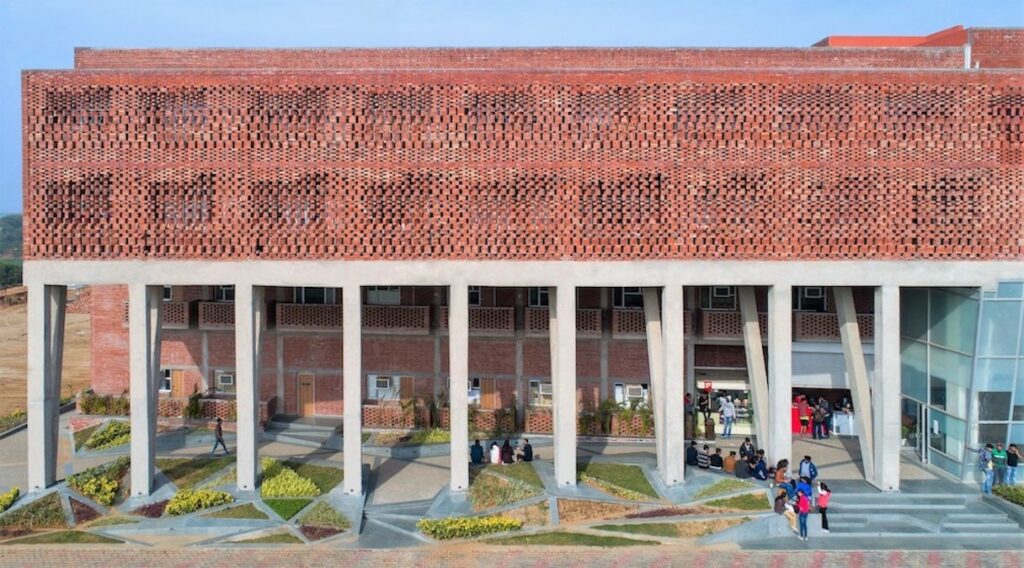
A degree in Computer Science Engineering opens up a wide array of career opportunities across various industries.
Here are some prominent career paths and roles that graduates of a BE Computer Science Engineering program can pursue:
Software Development
- Software Engineer/Developer: Design, develop, test, and maintain software applications and systems.
- Full Stack Developer: Work on both the front-end and back-end of applications, handling server, database, and user interface.
- Mobile App Developer: Specialize in creating applications for mobile devices using platforms like Android and iOS.
Web Development
- Front-End Developer: Focus on the design and implementation of the user interface and user experience.
- Back-End Developer: Handle server-side logic, databases, and integration of front-end elements.
- Web Designer: Design the layout, visual appearance, and usability of websites.
Analytics & Data Science
- Data Scientist: Analyze and interpret complex data to help organizations make informed decisions.
- Data Analyst: Work with data to derive meaningful insights and support business decision-making.
- Machine Learning Engineer: Develop algorithms and models that enable machines to learn from and make predictions based on data.
Artificial Intelligence and Machine Learning
- AI Engineer: Develop AI models and systems to solve complex problems.
- Machine Learning Engineer: Implement machine learning algorithms and build predictive models.
- Robotics Engineer: Design and build robots, often incorporating AI and machine learning.
Cybersecurity
- Security Analyst: Protect an organization’s computer systems and networks from cyber threats.
- Ethical Hacker: Conduct penetration testing to identify and fix security vulnerabilities.
- Security Consultant: Advise organizations on best practices for securing their information systems.
Cloud Computing
- Cloud Engineer: Design and manage cloud infrastructure and services.
- DevOps Engineer: Integrate and automate software development and IT operations.
- Cloud Architect: Develop and implement cloud solutions for businesses.
Networking
- Network Engineer: Design, implement, and manage network infrastructure.
- System Administrator: Maintain and configure computer systems and servers.
- Network Security Engineer: Focus on protecting network infrastructure from threats.
Research and Development
- Research Scientist: Conduct research in advanced computing topics like quantum computing, AI, and machine learning.
- R&D Engineer: Develop new technologies and improve existing ones.
Project Management
- Project Manager: Plan, execute, and oversee projects to ensure they meet deadlines, budgets, and quality standards.
- Product Manager: Oversee the development and success of products, working closely with engineering and marketing teams.
Consulting
- IT Consultant: Provide expert advice to organizations on IT strategy, implementation, and management.
- Technical Consultant: Offer specialized expertise in areas such as software, hardware, and networking.
Academia
- Professor/Lecturer: Teach computer science courses at universities or colleges.
- Researcher: Conduct research and contribute to academic publications in the field of computer science.
Entrepreneurship
- Startup Founder: Start and run a technology-based business or startup.
- Technical Co-Founder: Partner with others to provide the technical expertise needed to launch a new business.
Other Specialized Roles
- Game Developer: Design and develop video games for various platforms.
- Blockchain Developer: Work on blockchain technology and develop decentralized applications.
- IoT Engineer: Develop and manage Internet of Things (IoT) devices and systems.
Industry Sectors
Computer science engineers can work in various industry sectors, including:
- Information Technology: Traditional software and IT services companies.
- Finance: Banks, investment firms, and fintech companies.
- Healthcare: Health tech startups, hospitals, and medical research institutions.
- Telecommunications: Companies providing communication services.
- Manufacturing: Automation and industrial software solutions.
- E-commerce: Online retail companies and marketplaces.
- Entertainment: Media companies, gaming, and digital content creation.
Average Salary of a Computer Science Engineer
- The average salary for an entry-level computer science graduate is around Rs. 35,000 per month.
- The average salary for a software engineer is around Rs. 11 LPA.
- The average salary for a UI designer is around Rs. 6.7 LPA.
Skills Required for Computer Science Engineering
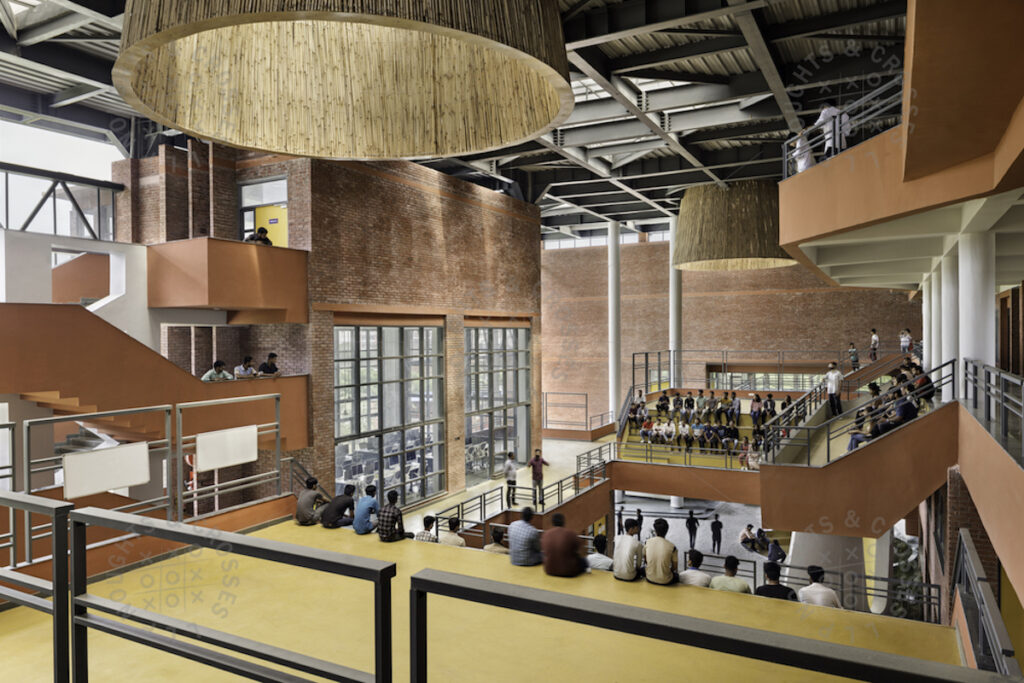
Computer Science Engineering (CSE) is a versatile field requiring a blend of technical and soft skills.
Here are the key skills needed:
Technical Skills:
Programming Languages: Proficiency in languages like Python, Java, C++, JavaScript, and others.
Data Structures and Algorithms: Understanding of fundamental data structures (arrays, linked lists, stacks, queues, etc.) and algorithms (sorting, searching, dynamic programming, etc.).
Computer Networks: Knowledge of networking concepts, protocols, and network security.
Operating Systems: Understanding of OS concepts like process management, memory management, file systems, and concurrency.
DBMS (Database Management Systems): Proficiency in SQL, NoSQL, database design, and management.
Software Development: Skills in software engineering principles, version control (e.g., Git), and agile methodologies.
Web Development: Familiarity with front-end (HTML, CSS, JavaScript) and back-end technologies (Node.js, Django, Flask, etc.).
Machine Learning and Artificial Intelligence: Basics of ML/AI algorithms, frameworks (TensorFlow, PyTorch), and data analysis.
Cyber Security: Understanding of security principles, encryption, and network security.
Cloud Computing: Knowledge of cloud services (AWS, Azure, Google Cloud) and virtualization.
Soft Skills:
Problem-Solving: Ability to tackle complex problems systematically and creatively.
Analytical Thinking: Strong analytical skills to interpret data and make informed decisions.
Teamwork: Ability to work effectively in a team environment, collaborating with others.
Communication: Excellent written and verbal communication skills for clear and concise interactions.
Adaptability: Willingness to learn new technologies and adapt to changing environments.
Time Management: Efficiently managing time to handle multiple tasks and meet deadlines.
Attention to Detail: Ensuring accuracy and precision in coding and project execution.
Critical Thinking: Evaluating and analyzing information to make logical and informed decisions.
Additional Skills:
Project Management: Understanding project lifecycles and managing projects from conception to completion.
Ethical Hacking: Knowledge of ethical hacking techniques and tools.
Mobile Development: Skills in developing mobile applications for platforms like Android and iOS.
DevOps: Understanding of DevOps practices and tools for continuous integration and continuous deployment (CI/CD).
Preparation Tips for BE in Computer Science

Preparing for a Bachelor of Engineering (BE) in Computer Science requires a combination of academic diligence, practical experience, and personal development.
Here are some tips to help you prepare effectively:
Academic Preparation:
Strong Foundation in Mathematics:
- Focus on subjects like algebra, calculus, discrete mathematics, and statistics.
- Practice problem-solving regularly to enhance your mathematical skills.
Learn Programming Early:
- Start with basic programming languages like Python or C++.
- Solve coding problems on platforms like LeetCode, HackerRank, or Codeforces.
Understand Computer Basics:
- Study the fundamentals of computer science, including computer architecture, operating systems, and data structures.
- Use resources like online courses, textbooks, and tutorials.
Online Courses and Certifications:
- Enroll in MOOCs (Massive Open Online Courses) from platforms like Coursera, edX, and Udacity.
- Complete certifications in relevant areas like programming, web development, and database management.
Practical Experience:
Build Projects:
- Work on small projects to apply your theoretical knowledge practically.
- Create a portfolio showcasing your projects on platforms like GitHub.
Internships and Part-Time Jobs:
- Gain real-world experience through internships or part-time jobs in tech companies.
- Participate in internships that offer exposure to different aspects of computer science.
Participate in Hackathons:
- Join hackathons to collaborate with peers, solve real-world problems, and develop your coding skills.
- Use hackathons to network with industry professionals and potential employers.
Personal Development:
Develop Problem-Solving Skills:
- Practice coding problems regularly to enhance your logical and analytical thinking.
- Participate in coding competitions and challenges.
Improve Communication Skills:
- Work on your verbal and written communication skills.
- Join clubs or groups that focus on public speaking, presentations, and technical writing.
Time Management:
- Learn to manage your time effectively to balance studies, projects, and extracurricular activities.
- Use tools like planners, calendars, and to-do lists.
Resources and Networking:
Utilize Online Resources:
- Follow educational YouTube channels, blogs, and forums related to computer science.
- Read research papers, articles, and books on current trends and technologies.
Join Professional Associations:
- Become a member of organizations like ACM (Association for Computing Machinery) or IEEE (Institute of Electrical and Electronics Engineers).
- Attend conferences, workshops, and seminars to stay updated with industry trends.
Connect with Peers and Mentors:
- Build a network with classmates, seniors, and professors.
- Seek guidance from mentors who can provide career advice and academic support.
Exam Preparation:
Study Regularly:
- Create a consistent study schedule to cover all subjects systematically.
- Review and revise your notes regularly.
Practice Past Papers:
- Solve previous years’ exam papers and sample questions.
- Identify and work on your weak areas.
Join Study Groups:
- Collaborate with peers in study groups to discuss and understand complex topics.
- Teach others what you have learned to reinforce your understanding.
Scope for Higher Education in Computer Science

The field of computer science offers vast opportunities for higher education, catering to a wide range of interests and career aspirations.
Here’s an overview of the scope:
1. Advanced Degrees
Master’s Programs (M.Sc., M.Tech, M.Eng.): Specializations include Artificial Intelligence, Data Science, Cyber Security, Software Engineering, etc.
Ph.D. Programs: Focus on research and development in cutting-edge areas like quantum computing, machine learning, and more.
2. Specializations
Artificial Intelligence & Machine Learning: Developing intelligent systems and learning algorithms.
Data Science & Big Data Analytics: Handling large datasets to extract meaningful insights.
Cyber Security: Protecting information systems from cyber threats.
Software Development: Advanced software engineering techniques and methodologies.
Human-Computer Interaction: Improving the interface between users and computers.
3. Career Prospects
Academia: Teaching and research positions in universities and colleges.
Industry: Roles such as data scientist, software engineer, AI specialist, cybersecurity analyst, etc.
Research Institutes: Positions in government or private research facilities focusing on technological advancements.
Entrepreneurship: Startups focusing on innovative tech solutions.
4. Global Opportunities
International Universities: Numerous top-ranked universities worldwide offer specialized programs and collaborative research opportunities.
Tech Hubs: Cities like Silicon Valley, Bengaluru, and Tel Aviv offer vibrant ecosystems for tech professionals.
5. Interdisciplinary Applications
Bioinformatics: Applying computer science to biological data.
Financial Technology (FinTech): Developing tech solutions for financial services.
Environmental Science: Using data analytics for environmental conservation.
6. Emerging Trends
Quantum Computing: A promising area with the potential to revolutionize computing power.
Blockchain Technology: Beyond cryptocurrencies, it offers secure data management solutions.
Internet of Things (IoT): Connecting devices for smarter infrastructure and systems.
FAQs
What are the core subjects covered in a B.E. in Computer Science?
Core subjects typically included in a computer science engineering course are Programming Languages, Data Structures, Algorithms, Computer Networks, Operating Systems, DBMS, Software Engineering, and Computer Architecture.
Are there any specializations within in computer science engineering courses?
Yes, some institutions offer specializations such as Artificial Intelligence, Machine Learning, Cyber Security, Data Science, Internet of Things (IoT), and Software Development.
What career opportunities are available after completing a B.E. in Computer Science?
Graduates can pursue careers as Software Developers, System Analysts, Network Engineers, Database Administrators, Cyber Security Analysts, AI/ML Engineers, and more. They can work in various industries such as IT, finance, healthcare, education, and government.
What is the average fee structure for a B.E. in Computer Science program?
The fee structure varies by institution. Government colleges may charge between ₹50,000 to ₹1,00,000 per annum, while private institutions may charge between ₹1,00,000 to ₹5,00,000 per annum.
What skills are important for success in a B.E. in Computer Science program?
Important skills for computer engineers include strong analytical and problem-solving abilities, proficiency in programming languages, understanding of algorithms, attention to detail, and the ability to work in teams.
Which is better, be or BTech?
Both BE (Bachelor of Engineering) and BTech (Bachelor of Technology) are undergraduate engineering programs, and their value largely depends on the institution offering the program and the individual’s career goals. Generally, BE programs may have a slightly more theoretical focus, while BTech programs might emphasize practical applications. However, the difference is minimal, and both degrees are equally respected in the industry. The choice should be based on the specific curriculum, faculty, and opportunities provided by the college or university.
What is the subject of Bachelor of Science in computer engineering?
A Bachelor of Science in Computer Engineering typically includes subjects that blend electrical engineering and computer science. Key subjects often include:
Computer Programming: Learning various programming languages and software development techniques.
Data Structures and Algorithms: Understanding how to organize and process data efficiently.
Computer Architecture: Studying the design and organization of computer systems.
Digital Logic Design: Learning about the fundamental building blocks of digital systems.
Electronics: Basic and advanced concepts in analog and digital electronics.
Microprocessors and Microcontrollers: Understanding the functioning and applications of microprocessors and microcontrollers.
Operating Systems: Studying how operating systems work and manage hardware and software resources.
Networks and Communication: Learning about computer networks, communication protocols, and data transmission.
Software Engineering: Principles of designing, developing, testing, and maintaining software.
Embedded Systems: Designing and developing embedded systems and applications.
VLSI Design: Introduction to Very-Large-Scale Integration (VLSI) circuits and systems.
Signal Processing: Techniques for analyzing and processing signals.
Control Systems: Understanding the principles of control systems and their applications.
Is BTech and Bachelor of computer science same?
No, BTech (Bachelor of Technology) and Bachelor of Computer Science are not the same. BTech is an engineering degree that covers various engineering disciplines, including Computer Science, while a Bachelor of Computer Science focuses specifically on computer science and its applications.


